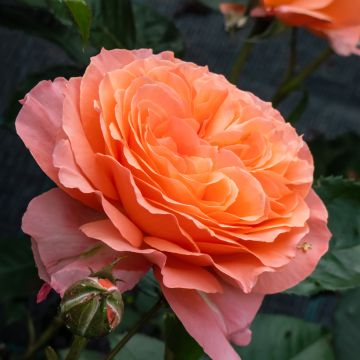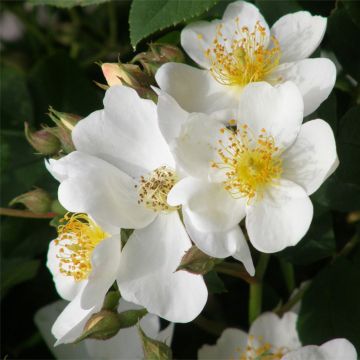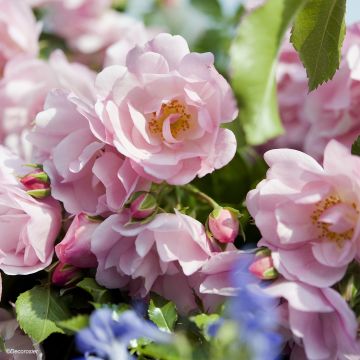

Rosa Ulrich Brunner Fils
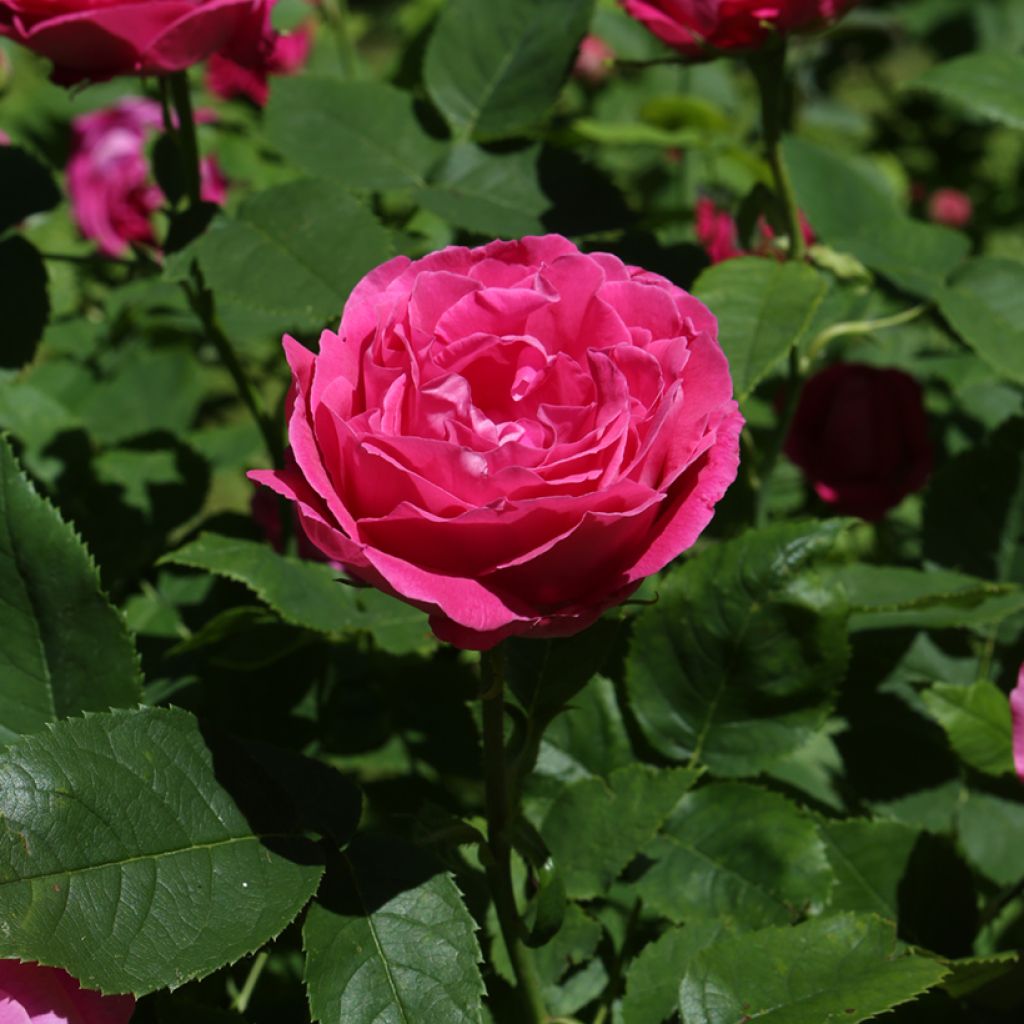

Rosa Ulrich Brunner Fils


Rosa Ulrich Brunner Fils
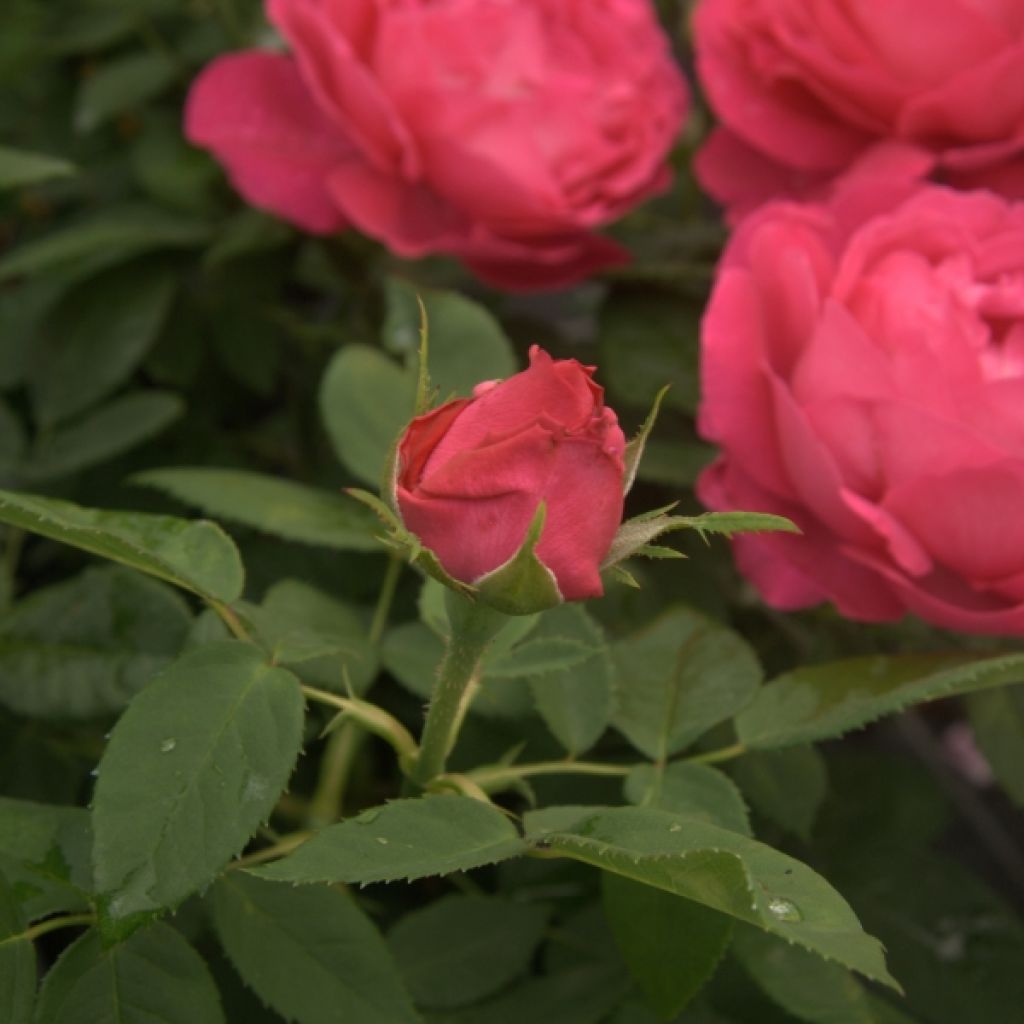

Rosa Ulrich Brunner Fils


Rosa Ulrich Brunner Fils
View more pictures
Hide images

Thierry P.

May flowering - image 2
Thierry P. • 84 FR
Rosa Ulrich Brunner Fils
Rosa Ulrich Brunner fils
Rose
Very beautiful rose bush, thank you for the careful preparation.
Nath44, 17/06/2025
Special offer!
Receive a €20 voucher for any order over €90 (excluding delivery costs, credit notes, and plastic-free options)!
1- Add your favorite plants to your cart.
2- Once you have reached €90, confirm your order (you can even choose the delivery date!).
3- As soon as your order is shipped, you will receive an email containing your voucher code, valid for 3 months (90 days).
Your voucher is unique and can only be used once, for any order with a minimum value of €20, excluding delivery costs.
Can be combined with other current offers, non-divisible and non-refundable.
Home or relay delivery (depending on size and destination)
Schedule delivery date,
and select date in basket
This plant carries a 6 months recovery warranty
More information
We guarantee the quality of our plants for a full growing cycle, and will replace at our expense any plant that fails to recover under normal climatic and planting conditions.
Description
Rosa 'Ulrich Brunner Fils', easy and generous, was widely cultivated in the 1900-1910s for cut flowers. This old shrub rose produces large and beautiful roses in a vibrant cherry red colour, fading to carmine lilac pink, which exude a very pleasant fragrance with hints of apple and vanilla. They bloom on a beautiful hardy foliage, with shiny dark green leaves, carried by almost thornless stems. Vigorous and undemanding, this wonderful bush grows in any soil and in all climates. It blooms early, abundantly, and repeatedly. A nostalgic and radiant rose, expressing all the charm of a bygone era!
This 'Ulrich Brunner Fils' rose belongs to the group of perpetual hybrids, roses that bridge the gap between old roses and modern, repeat-flowering roses. These varieties, such as 'Baron Giraud de l'Ain' or 'Enfant de France', are the result of a first generation hybridization between Portland roses and repeat-flowering varieties derived from Rosa chinensis. They generally have a perfectly repeat-flowering and extraordinarily fragrant bloom.
Derived from a spontaneous seedling of the 'Anna de Diesbach' rose, 'Ulrich Brunner Fils' has somewhat uncertain origins, but it is believed that its 'father' could be the 'Paul Neyron' rose. It is a vigorous bush that will reach a minimum height of 1.60m (5ft 2in) and a spread of 1.20m (3ft 11in) in the space of 4 years. Flowering begins in May, depending on the climate, and continues until the end of summer if the soil remains somewhat moist. The reddish spherical buds, always in clusters, open into cups of 30 to 40 large and wide cherry red petals, lighter on the reverse. These roses measure approximately 10cm (3.9in) in diameter. They do not yet have the perfect form of modern tea hybrids, but they bloom in a slightly irregular shape that is charming, while taking on shades of carmine pink with lilac reflections. The fragrance of the flowers is fruity, sweet, and floral. The deciduous foliage, with its glossy dark green colour, covers long stems almost devoid of thorns. It is resistant to rose diseases.
This rose has its rightful place in the scented garden. Its willingness to bloom and grow anywhere, its fragrance, and its vibrant colour deserve a place in the garden of any rose and bouquet lover. When planting it, make sure to have easy access to the roses during flowering as its main interest lies in the bouquets its flowers make, as well as their sweet fragrance. A rose with flowers in shades of violet or blue, such as 'Veilchenblau', 'Rhapsody in Blue', or even 'Sissi', will enhance its roses.
Antoine Levet, the breeder of this rose, is part of the great tradition of Lyon rose growers.
Bred by A. Levet in 1882 (France)
Report an error about the product description
Plant habit
Flowering
Foliage
Botanical data
Rosa
Ulrich Brunner fils
Rosaceae
Rose
Cultivar or hybrid
Rosa canina Laxa (Wrapped bare root, 4L/5L pot)
Planting and care
Plant your 'Ulrich Brunner Fils' Rose in a sunny location. Even though you need to be careful with excess limestone, your rose will adapt to any garden as long as the soil is well worked and rich enough. To plant your rose, work the soil by crumbling it and add an amendment, such as dried blood or dehydrated horn, at the bottom of the planting hole. Water generously after planting to remove air pockets. Water regularly for a few weeks to facilitate root development. You can optionally provide your rose with special rose fertilizer that stimulates plant flowering. Pruning of perpetual roses is essential for flowering. Shorten the branches to three eyes above the ground (at the lowest point) in late winter after the risk of frost has passed. Choose an outward-facing eye for a more elegant habit. Take advantage of this pruning to remove dead wood and unsightly branches. Pruning should be done at a slant above an eye. As the flowers bloom, remove faded flowers to stimulate the development of other buds.
Roses are often stained or unsightly at the end of summer, but this is not a problem for their development. These spots are not harmful to the rose; it is a natural phenomenon.
Planting period
Intended location
Care
-
, onOrder confirmed
Reply from on Promesse de fleurs
Similar products
Haven't found what you were looking for?
Hardiness is the lowest winter temperature a plant can endure without suffering serious damage or even dying. However, hardiness is affected by location (a sheltered area, such as a patio), protection (winter cover) and soil type (hardiness is improved by well-drained soil).

Photo Sharing Terms & Conditions
In order to encourage gardeners to interact and share their experiences, Promesse de fleurs offers various media enabling content to be uploaded onto its Site - in particular via the ‘Photo sharing’ module.
The User agrees to refrain from:
- Posting any content that is illegal, prejudicial, insulting, racist, inciteful to hatred, revisionist, contrary to public decency, that infringes on privacy or on the privacy rights of third parties, in particular the publicity rights of persons and goods, intellectual property rights, or the right to privacy.
- Submitting content on behalf of a third party;
- Impersonate the identity of a third party and/or publish any personal information about a third party;
In general, the User undertakes to refrain from any unethical behaviour.
All Content (in particular text, comments, files, images, photos, videos, creative works, etc.), which may be subject to property or intellectual property rights, image or other private rights, shall remain the property of the User, subject to the limited rights granted by the terms of the licence granted by Promesse de fleurs as stated below. Users are at liberty to publish or not to publish such Content on the Site, notably via the ‘Photo Sharing’ facility, and accept that this Content shall be made public and freely accessible, notably on the Internet.
Users further acknowledge, undertake to have ,and guarantee that they hold all necessary rights and permissions to publish such material on the Site, in particular with regard to the legislation in force pertaining to any privacy, property, intellectual property, image, or contractual rights, or rights of any other nature. By publishing such Content on the Site, Users acknowledge accepting full liability as publishers of the Content within the meaning of the law, and grant Promesse de fleurs, free of charge, an inclusive, worldwide licence for the said Content for the entire duration of its publication, including all reproduction, representation, up/downloading, displaying, performing, transmission, and storage rights.
Users also grant permission for their name to be linked to the Content and accept that this link may not always be made available.
By engaging in posting material, Users consent to their Content becoming automatically accessible on the Internet, in particular on other sites and/or blogs and/or web pages of the Promesse de fleurs site, including in particular social pages and the Promesse de fleurs catalogue.
Users may secure the removal of entrusted content free of charge by issuing a simple request via our contact form.
The flowering period indicated on our website applies to countries and regions located in USDA zone 8 (France, the United Kingdom, Ireland, the Netherlands, etc.)
It will vary according to where you live:
- In zones 9 to 10 (Italy, Spain, Greece, etc.), flowering will occur about 2 to 4 weeks earlier.
- In zones 6 to 7 (Germany, Poland, Slovenia, and lower mountainous regions), flowering will be delayed by 2 to 3 weeks.
- In zone 5 (Central Europe, Scandinavia), blooming will be delayed by 3 to 5 weeks.
In temperate climates, pruning of spring-flowering shrubs (forsythia, spireas, etc.) should be done just after flowering.
Pruning of summer-flowering shrubs (Indian Lilac, Perovskia, etc.) can be done in winter or spring.
In cold regions as well as with frost-sensitive plants, avoid pruning too early when severe frosts may still occur.
The planting period indicated on our website applies to countries and regions located in USDA zone 8 (France, United Kingdom, Ireland, Netherlands).
It will vary according to where you live:
- In Mediterranean zones (Marseille, Madrid, Milan, etc.), autumn and winter are the best planting periods.
- In continental zones (Strasbourg, Munich, Vienna, etc.), delay planting by 2 to 3 weeks in spring and bring it forward by 2 to 4 weeks in autumn.
- In mountainous regions (the Alps, Pyrenees, Carpathians, etc.), it is best to plant in late spring (May-June) or late summer (August-September).
The harvesting period indicated on our website applies to countries and regions in USDA zone 8 (France, England, Ireland, the Netherlands).
In colder areas (Scandinavia, Poland, Austria...) fruit and vegetable harvests are likely to be delayed by 3-4 weeks.
In warmer areas (Italy, Spain, Greece, etc.), harvesting will probably take place earlier, depending on weather conditions.
The sowing periods indicated on our website apply to countries and regions within USDA Zone 8 (France, UK, Ireland, Netherlands).
In colder areas (Scandinavia, Poland, Austria...), delay any outdoor sowing by 3-4 weeks, or sow under glass.
In warmer climes (Italy, Spain, Greece, etc.), bring outdoor sowing forward by a few weeks.


































